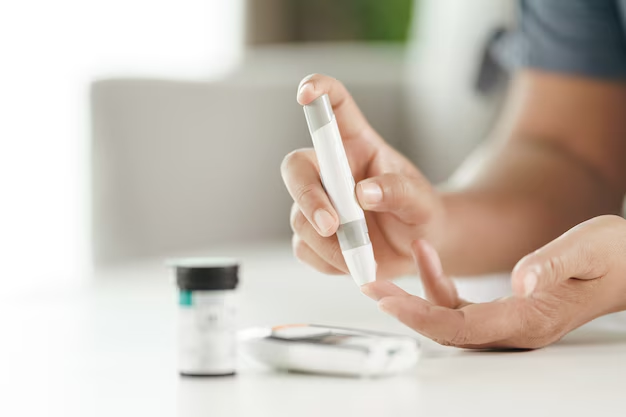Your Guide to What Is a Good Sugar Level For a Diabetic
What You Get:
Free Guide
Free, helpful information about Diabetes FAQ and related What Is a Good Sugar Level For a Diabetic topics.
Helpful Information
Get clear and easy-to-understand details about What Is a Good Sugar Level For a Diabetic topics and resources.
Personalized Offers
Answer a few optional questions to receive offers or information related to Diabetes FAQ. The survey is optional and not required to access your free guide.
Understanding Optimal Blood Sugar Levels for Diabetics: What You Need to Know
Managing diabetes effectively revolves around maintaining target blood sugar levels, a critical task for ensuring long-term health. If you're newly navigating the world of diabetes, knowing what constitutes a "good" blood sugar level is essential for guiding your healthcare decisions.
Target Blood Sugar Levels
For diabetics, "good" sugar levels can vary depending on several factors such as age, time of day, and individual health conditions. However, there are general targets that healthcare professionals suggest:
- Fasting Blood Sugar: After an overnight fast, the level should be between 80-130 mg/dL.
- Postprandial Blood Sugar: One to two hours after meals, the target should be less than 180 mg/dL.
- A1C Level: This test gives an average of blood sugar levels over the past two to three months, with a target of less than 7%.
These targets might slightly differ based on guidelines in various regions or personal health plans, so it's always best to work with your healthcare provider to tailor these numbers to your specific needs.
Why Maintaining These Levels is Crucial
Keeping blood sugar levels within these targets is vital to prevent both short-term issues and long-term complications. Hypoglycemia (low blood sugar) can cause dizziness, confusion, and even loss of consciousness, while hyperglycemia (high blood sugar) can lead to dehydration, ketoacidosis, and long-term damage to vital organs.
Financial Support: Navigating the Costs of Diabetes Management
Managing diabetes involves regular monitoring, medication, dietary management, and sometimes complex treatment plans, all of which can be financially burdensome. Fortunately, there are several avenues for financial assistance that can ease this burden:
- Government Aid Programs: Initiatives such as Medicaid or Medicare may cover some aspects of diabetes care for eligible individuals.
- Insurance Options: Review your plan to ensure it covers diabetes-related supplies and medications, or consider plans that offer comprehensive diabetes care.
- Pharmaceutical Assistance Programs: Many drug companies offer discounts or free medications to those who qualify.
- Non-Profit Organizations: Groups like the American Diabetes Association offer support and resources to help reduce diabetes-associated costs.
Educational Grants and Opportunities
Education plays a crucial role in diabetes management. Diabetes self-management education (DSME) programs, often covered by insurance plans, provide vital information about managing your condition. Consider enrolling in these programs to improve your management strategies and health outcomes.
Taking Control
Maintaining optimal sugar levels can feel challenging, but with a combination of informed healthcare decisions and strategic financial planning, it's totally achievable. By leveraging available resources, you can confidently navigate the economic aspects of diabetes care while focusing on your health.
Here's a quick guide to assist you in managing your diabetes costs:
🔍 Financial & Educational Resources
- 🏛️ Government Programs: Medicare, Medicaid
- 💊 Drug Assistance Programs: Discounts from pharmaceutical companies
- 📚 Educational Workshops: Diabetes self-management courses
- 🔗 Non-Profit Assistance: American Diabetes Association resources
- 💼 Insurance Review: Ensure full coverage for diabetes needs
Understanding and controlling your blood sugar levels not only involves daily health practices but also financial and educational support. Empower yourself with the knowledge and resources necessary to thrive with diabetes.
What You Get:
Free Diabetes FAQ Guide
Free, helpful information about What Is a Good Sugar Level For a Diabetic and related resources.

Helpful Information
Get clear, easy-to-understand details about What Is a Good Sugar Level For a Diabetic topics.

Optional Personalized Offers
Answer a few optional questions to see offers or information related to Diabetes FAQ. Participation is not required to get your free guide.


